Words that Have Made History, or Modeling the Dynamics of Linguistic Changes
Maciej Eder
Institute of Polish Language (Polish Academy of Sciences)
Digital Humanities 2018, Mexico City, 29 June 2018
Maciej Eder
Maciej Eder
Institute of Polish Language (Polish Academy of Sciences)
Digital Humanities 2018, Mexico City, 29 June 2018









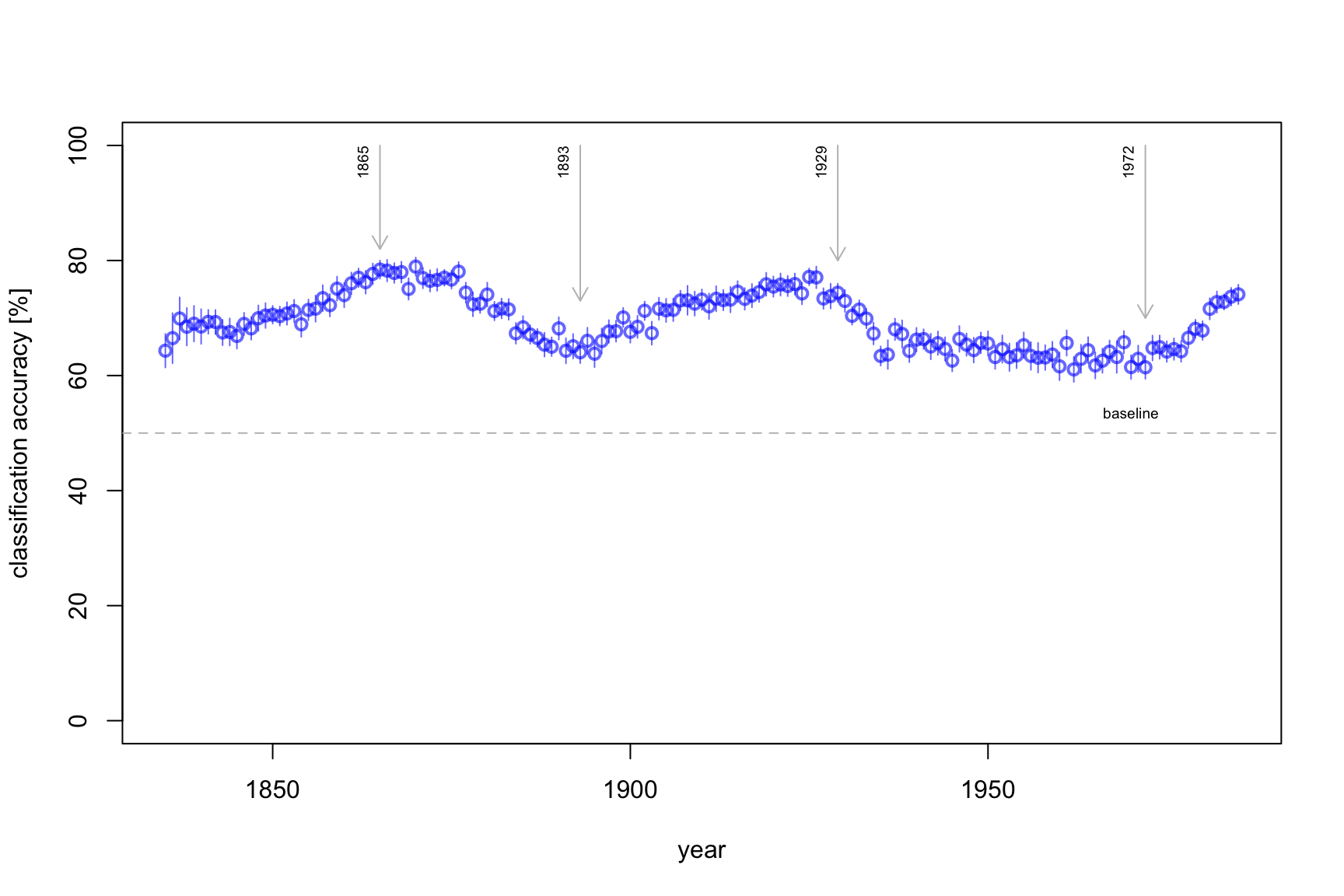
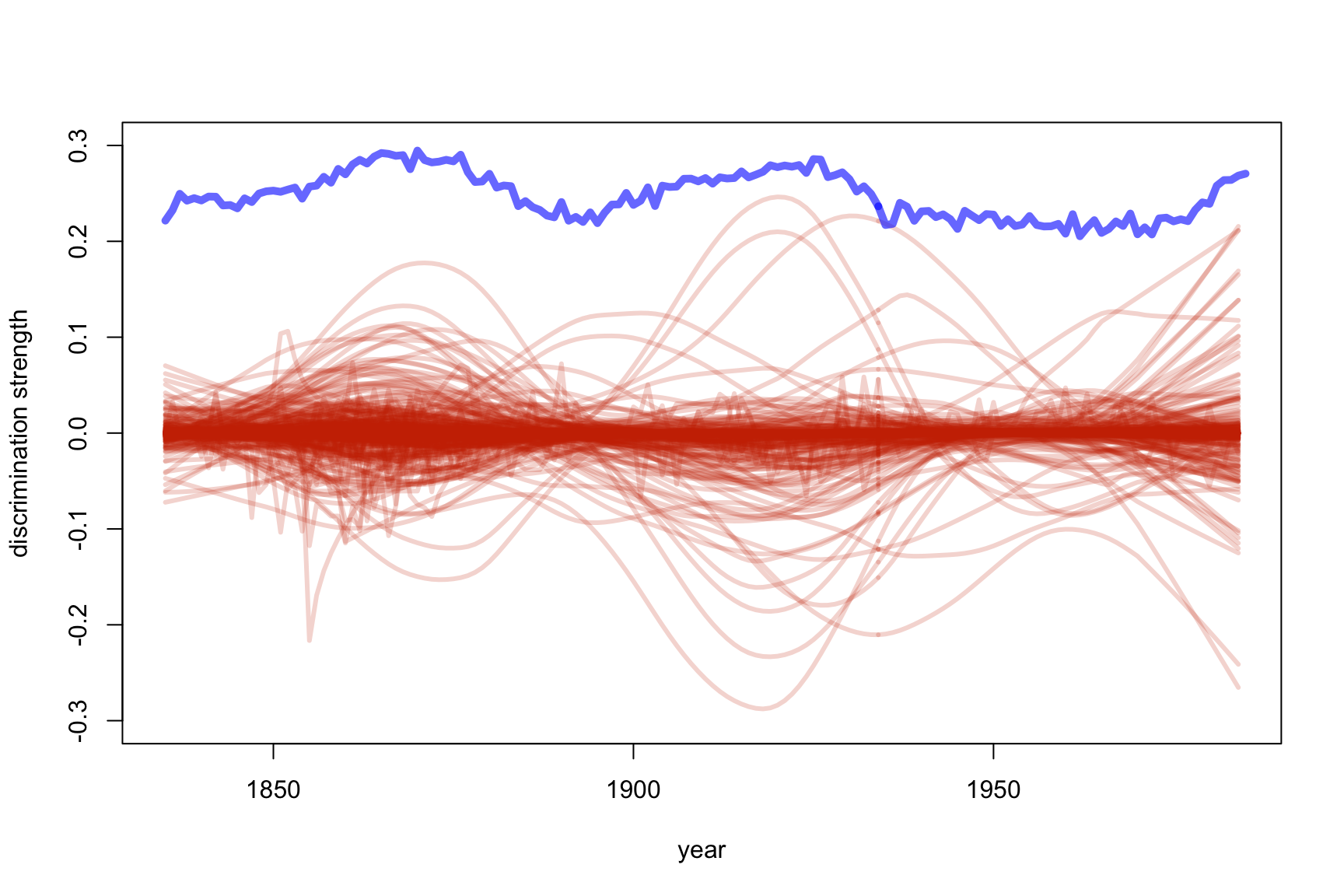
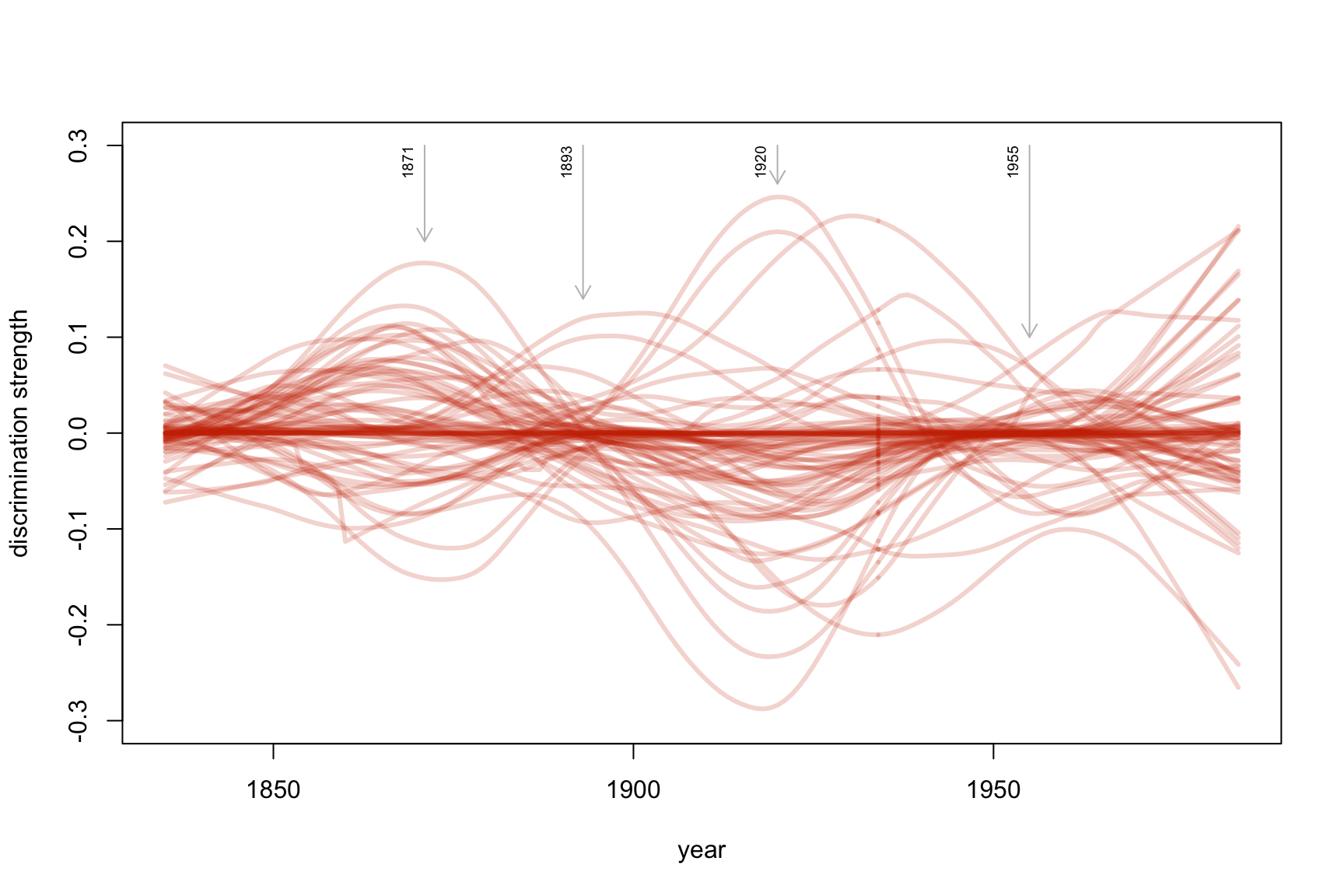
## [1] "the" "and" "week" "that" "'s"
## [6] "last" "is" "be" "of" "it"
## [11] "we" "i" "to" "was" "mr."
## [16] "our" "my" "been" "not" "u.s."
## [21] "you" "new" "upon" "there" "has"
## [26] "says" "war" "york" "this" "n't"
## [31] "will" "s" "which" "for" "had"
## [36] "very" "have" "said" "are" "in"
## [41] "city" "made" "me" "a" "president"
## [46] "her" "us" "she" "his" "by"
## [51] "united" "or" "at" "but" "q!"
## [56] "party" "committee" "your" "so" "as"
## [61] "street" "today" "men" "would" "with"
## [66] "about" "heart" "do" "any" "'d"
## [71] "out" "all" "if" "great" "army"
## [76] "up"



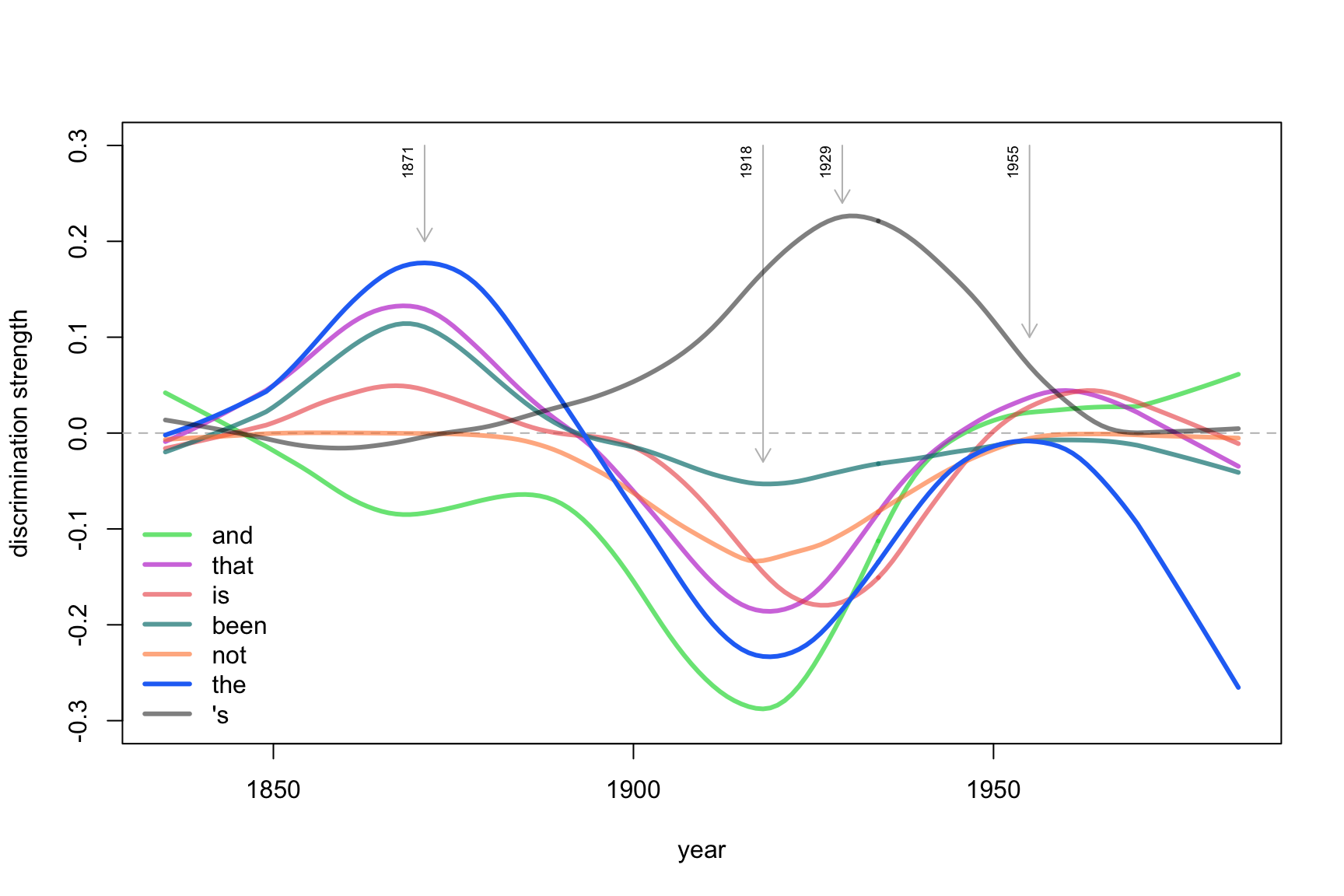

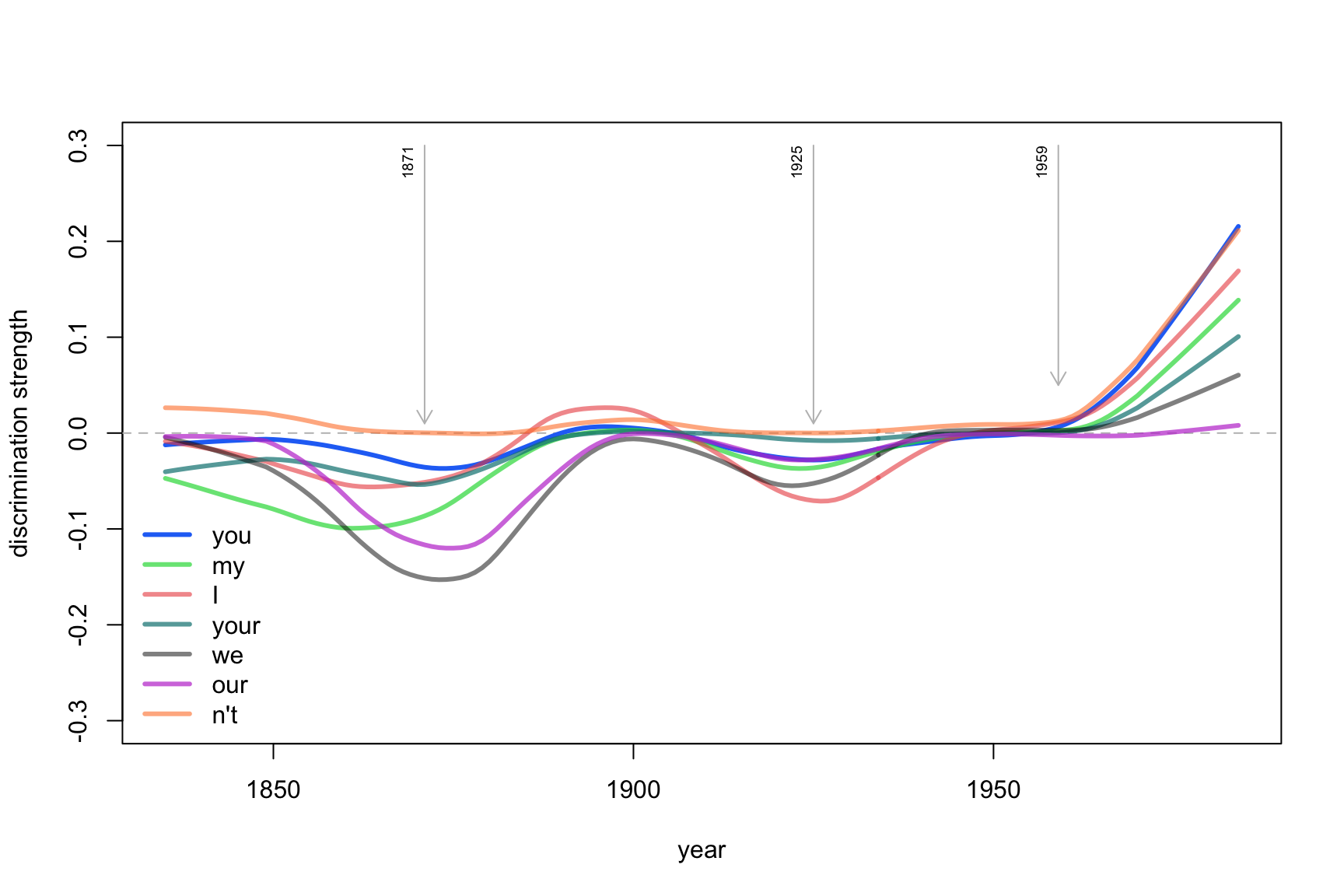
This research is part of project UMO-2013/11/B/HS2/02795, supported by Poland’s National Science Centre.